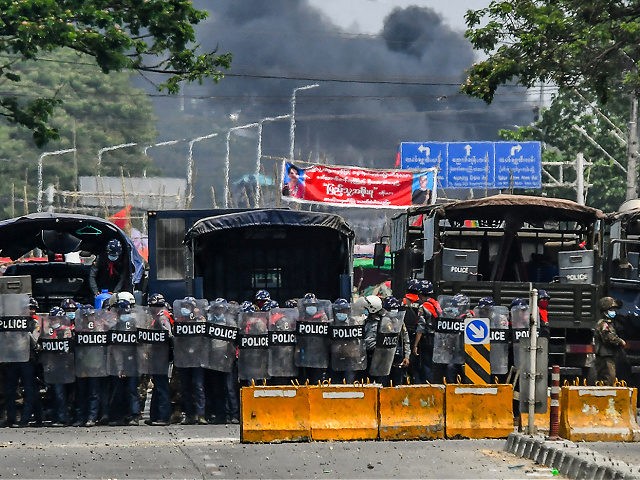China’s state-run Global Times reported Sunday that Chinese rare-earth companies are discovering they can no longer secure their supplies easily from Myanmar, a major Chinese supplier whose civilian government fell to a military coup last month.
For the first time, the Chinese are openly wondering if the coup might be bad for their business interests.
Until now, Beijing has been very tepidly critical of the coup at best. Burmese democracy activists accuse the Chinese of actively supporting the military junta. Some protesters have vandalized Chinese businesses in Myanmar as a result.
Business analysts wondered in February if China was underestimating the potential supply disruptions from the coup. China gets a significant amount of tin from Myanmar and also about half of its heavy rare earth concentrates, which are a vital resource for electronics, robotics, smartphones, powerful magnets, advanced weapon systems, and other high-tech industries.
A previous shortage of rare earths from Myanmar in 2018 — when exports were briefly banned by the Myanmar government because of a dispute with China — led to surging rare earths prices and occasional halts in Chinese high-tech exports. The new shortage caused by political instability in Myanmar is hitting just as Chinese tech manufacturing ramps up after the pandemic.
The Global Times on Sunday conceded “Myanmar’s rare-earth exports to China have dwindled to some extent, which has led to soaring rare-earth oxide prices in the market.” One Chinese buyer said costs have risen 30 to 40 percent since the beginning of the year.
By subscribing, you agree to our terms of use & privacy policy. You will receive email marketing messages from Breitbart News Network to the email you provide. You may unsubscribe at any time.
The mines in Myanmar are ostensibly still running on schedule, but “logistics issues” are holding up shipments to China. The Global Times quoted a mining manager who said Myanmar’s “political upheaval” is spreading into the northern part of the country, where the rare earth mines are located, potentially jeopardizing mine operations in the near future.
“The biggest issue is that rare earths from Myanmar cannot be shipped to China, and it is not clear when this barrier will be removed, as it is highly dependent on Myanmar’s political situation,” another company manager said.
The Global Times insisted China’s reserves of heavy rare earths “can easily meet rising domestic demand,” and Chinese mines could ramp up production to cover the shortfall from Myanmar.
China occasionally uses its control over the global rare-earths market for political leverage, as when it choked off exports to Japan in 2010 during a South China Sea territorial dispute. The U.S. has considered increasing its own production or seeking alternate suppliers to reduce Chinese control over the market. One obstacle to creating new supply chains is that China tends to surge its exports and bring global prices crashing down when it sees corporations in other countries trying to enter the market.

COMMENTS
Please let us know if you're having issues with commenting.